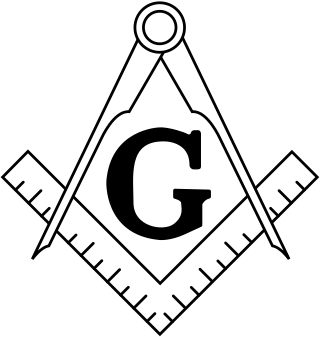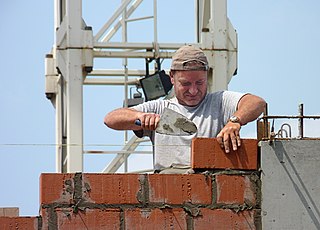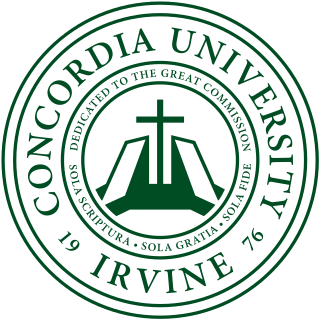This article needs additional citations for verification .(February 2024) |
The Mason Contractors Association of America (MCAA) is a trade association in the United States of America representing mason contractors. [1]
This article needs additional citations for verification .(February 2024) |
The Mason Contractors Association of America (MCAA) is a trade association in the United States of America representing mason contractors. [1]
MCAA promotes building codes and standards for mason contractors and designers such as the ASTM, MSJC, ASCE, and the IBC.
Each year, MCAA conducts the MCAA Convention which includes the annual meeting and educational programming. The association conducts various classes. Some programs include Masonry Foreman Development, Basic Masonry Estimating, Masonry Quality Institute, and other topics such as Masonry Wall Bracing and Understanding Masonry Codes and Standards.
The MCAA provides information on careers in masonry to students, parents and high schools. The MCAA supports the establishment of both pre-apprentice and apprenticeship programs and assists local training programs.
The full board consists of a Chairman, Chairman Elect, Treasurer, Secretary and nine Regional Vice Presidents. In addition, State Chairmen serve for each state and thirteen Committees help drive the association.
The Mason Contractors Association of America has a full-time staff in Washington, D.C.
The Federal Information Processing Standards (FIPS) of the United States are a set of publicly announced standards that the National Institute of Standards and Technology (NIST) has developed for use in computer systems of non-military United States government agencies and contractors. FIPS standards establish requirements for ensuring computer security and interoperability, and are intended for cases in which suitable industry standards do not already exist. Many FIPS specifications are modified versions of standards the technical communities use, such as the American National Standards Institute (ANSI), the Institute of Electrical and Electronics Engineers (IEEE), and the International Organization for Standardization (ISO).

Freemasonry or Masonry refers to fraternal organisations and guilds of stonemasons that, from the end of the 14th century, regulated the qualifications of stonemasons and their interaction with authorities and clients. Modern Freemasonry broadly consists of two main recognition groups: Regular Freemasonry, which insists that a volume of scripture be open in a working lodge, that every member professes belief in a Supreme Being, that no women be admitted, and that the discussion of religion and politics do not take place within the lodge; and Continental Freemasonry, which consists of the jurisdictions that have removed some, or all, of these restrictions.

Masonry is the craft of building a structure with brick, stone, or similar material, including mortar plastering which are often laid in, bound and pasted together by mortar. The term masonry can also refer to the building units themselves.

Parliamentary procedures are the accepted rules, ethics, and customs governing meetings of an assembly or organization. Their object is to allow orderly deliberation upon questions of interest to the organization and thus to arrive at the sense or the will of the majority of the assembly upon these questions. Self-governing organizations follow parliamentary procedure to debate and reach group decisions, usually by vote, with the least possible friction.

Professional diving is underwater diving where the divers are paid for their work. Occupational diving has a similar meaning and applications. The procedures are often regulated by legislation and codes of practice as it is an inherently hazardous occupation and the diver works as a member of a team. Due to the dangerous nature of some professional diving operations, specialized equipment such as an on-site hyperbaric chamber and diver-to-surface communication system is often required by law, and the mode of diving for some applications may be regulated.

A concrete block, also known as a cinder block in North American English, breeze block in British English, concrete masonry unit (CMU), or by various other terms, is a standard-size rectangular block used in building construction. The use of blockwork allows structures to be built in the traditional masonry style with layers of staggered blocks.
A general contractor, main contractor, prime contractor, builder (UK/AUS), or contractor is responsible for the day-to-day oversight of a construction site, management of vendors and trades, and the communication of information to all involved parties throughout the course of a building project. In the USA a builder may be a sole proprietor managing a project and performing labor or carpentry work, have a small staff, or may be a very large company managing billion dollar projects. Some builders build new homes, some are remodelers, some are developers.

The Operative Plasterers' and Cement Masons' International Association of the United States and Canada (OPCMIA) is a trade union of plasterers and cement masons in the construction industry in the United States and Canada. Members of the union finish interior walls and ceilings of buildings and apply plaster on masonry, metal, and wire lath or gypsum. Cement masons are responsible for all concrete construction, including pouring and finishing of slabs, steps, wall tops, curbs and gutters, sidewalks, and paving. The organization is a member union of the AFL–CIO and Canadian Labour Congress.
A parliamentary authority is a book of rules for conducting business in deliberative assemblies. Several different books have been used by legislative assemblies and by organizations' deliberative bodies.

Concordia University Irvine is a private Lutheran university in Irvine, California, United States. It was established in 1976 to provide a Lutheran Church–Missouri Synod college to serve the Pacific Southwest and provide training for pastors, religious education teachers, and Christian school administrators. Concordia University Irvine has a total undergraduate enrollment of 1,592 and its campus size is 70 acres (28 ha). It is part of the Concordia University System.

The National Association of Home Builders (NAHB) is one of the largest trade associations in the United States, representing the interests of home builders, developers, contractors, and associated businesses. NAHB is headquartered in Washington, D.C.
The Information Technology Contract and Recruitment Association (ITCRA), incorporated on 8 December 1998 and based in Melbourne, Australia, is a group of CEOs in the IT contract and recruitment industry who gathered together to air their concerns with each other about the state of the industry.
MCAA may refer to:
Indian Register of Shipping (IRClass) is an internationally recognised, independent ship classification society, founded in India in 1975. It is a public limited company incorporated under Section 25 of the Indian Companies Act 1956 (Section 8 of Indian Companies Act 2013). It is a Non-Profit organisation, Public undertaking and a member of the 12 member International Association of Classification Societies (IACS). It was inducted into IACS along with Croatian Register of Shipping (CRS) and Polish Register of Shipping (PRS).
The Social Science Research Laboratory (SSRL) is a component of the College of Arts & Letters at San Diego State University (SDSU) in San Diego, California.
An electrical contractor is a business person or firm that performs specialized construction work related to the design, installation, and maintenance of electrical systems. An electrical contractor is different from an electrician; an electrician is an individual tradesman and an electrical contractor is a business person or company that employs electricians. Both usually hold licenses and insurances to properly and safely operate a business, protecting the employees and home owners/business owners from insurance liabilities. These requirements vary from state to state. Electricians may work for an electrical contractor, or directly for individuals or companies.
The UK Contractors Group (UKCG) was the primary association for construction contractors operating in the United Kingdom from January 2009 until September 2015.
The Healthcare Common Procedure Coding System is a set of health care procedure codes based on the American Medical Association's Current Procedural Terminology (CPT).
The Uniform Mechanical Code (UMC) is a model code developed by the International Association of Plumbing and Mechanical Officials (IAPMO) to govern the installation, inspection and maintenance of HVAC and refrigeration systems. It is designated as an American National Standard.
Anand Swarup Arya (1931-2019) was an Indian structural engineer, known for his expertise in the soil and foundation engineering and earthquake disaster management. He is a former chairman of the Bureau of Indian Standards (BIS) Committee on Earthquake Engineering and a recipient of the United Nations Sasakawa Disaster Prevention Award of 1997. The Government of India awarded him the fourth highest civilian honour of the Padma Shri in 2002.